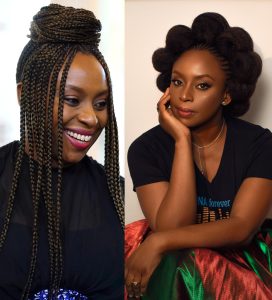At this point in my life, if I have the opportunity to marry again, as a second, third, fourth, or even fifth wife, I’ll take it – Toke Makinwa
In a world where women are expected to strive for independence, perfection, and self-sufficiency, one Nigerian media powerhouse has ignited a fresh and fiery conversation on the complexity of modern womanhood. Toke Makinwa — celebrated media personality, author, entrepreneur, and actress — is no stranger to public scrutiny. Known for her candor and flamboyant lifestyle, she recently made headlines when she confessed on her podcast Toke Moments that she would be open to marrying again — even if it meant becoming a second, third, fourth, or fifth wife.
The statement, shocking to some and relatable to others, stirred heated debate across social media, radio shows, and dinner tables, challenging widely held assumptions about feminism, traditional marriage, and what it truly means to be an independent woman in 2025.
YOU MAY READ
Toke Makinwa on Being Single, Childless, and Thriving at 40
But what did Toke really mean, and why did her words resonate so powerfully with women and men alike?
This in-depth feature explores the emotional, cultural, and societal layers behind Toke’s viral declaration — and why, at this point in her life, being a ‘fifth wife’ might just make more sense than being first in line.
On the latest episode of Toke Moments, Makinwa sat in front of her microphone — polished, poised, and unapologetically honest — as she peeled back the layers of her own emotional journey.
“As independent women, do you think that we have glamourized this notion of being independent? Yeah. It’s tough, I won’t lie,” she said. “Let me break it down. Forget the cameras. At this point in my life, if I have the opportunity to be the second, third, fourth or fifth wife, I will take it.”
The internet lit up.
For some, it was blasphemy — a betrayal of modern feminism. For others, it was a brutally honest admission that shattered the veneer of strong, independent womanhood.
Makinwa went on to explain that the burden of constantly being “the boss” can be emotionally and physically exhausting.
“Let me tell you what the biggest thing for me is — I am the boss everywhere and that could be tiring. You feel like you need someone to lean on. Someone that could decide what is for dinner. Must it be me?”
Her voice — often associated with glitz, glam, and the Lagos elite — for once, sounded vulnerable. Not defeated, but tired. And that sentiment resonated.
YOU MAY READ
Lady cancels White Wedding as she allegedly said that the mom had already prepared another man living abroad for her.
Toke Makinwa is not your average media girl. Over the past decade, she has become one of Nigeria’s most recognizable faces — building an empire through radio, TV, social media, fashion, skincare, and acting. Her memoir, On Becoming, was a bestseller that chronicled her personal heartbreak and the collapse of her marriage to fitness entrepreneur, Maje Ayida, who was unfaithful during their union.
The marriage, which lasted from 2014 to 2017, ended in controversy and pain. But out of that wreckage, Toke rose stronger. Or so it seemed.
In many ways, she embodies the modern Nigerian woman: ambitious, financially successful, self-made, stylish, and outspoken. But her recent comments reveal what lies beneath that exterior — the human desire for love, companionship, vulnerability, and the freedom to not always be in control.
It’s not weakness. It’s honesty.
YOU MAY READ
Michelle Obama Takes Bedroom Dig at Barack Obama Amid Divorce Rumors (Video)
Toke’s declaration struck a chord because it dared to confront the elephant in the room: independence comes with a price. And for many women, that price is emotional exhaustion.
In a patriarchal society like Nigeria’s, women are increasingly pressured to “have it all” — the career, the home, the kids, the flawless social media presence, the romantic partner — all while pretending it’s effortless.
Toke’s statement challenged this myth.
“I’m tired of deciding what’s for dinner,” she said — a metaphor for the hundreds of decisions women make daily without support.
It was not a glorification of polygamy per se, but rather a yearning for partnership, shared responsibility, and the luxury of leaning on someone else — even if that someone is already sharing their life with other women.
The idea of marrying into a polygamous home is one that traditionally aligns more with patriarchal customs than feminist ideals. So why would a modern, independent woman like Toke Makinwa entertain such a notion?
Cultural experts and sociologists offer several perspectives:
Dr. Chioma Ojiaku, a psychologist based in Lagos, explains:
“Women like Toke are expected to be invulnerable. Society claps for their success but doesn’t account for their emotional needs. Her statement speaks to a deeper crisis — the emotional loneliness that comes with being perceived as too strong to need help.”
With rising divorce rates, late marriages, and increasing female financial autonomy, some women are beginning to redefine what marriage means to them.
“Toke is expressing a new model of partnership,” says sociologist Dr. Ibrahim Bello. “One where emotional support outweighs traditional roles. She’s saying: ‘I don’t need to be number one; I just want peace, presence, and partnership.’”
YOU MAY READ
24 cases on today’s court list, 22 are divorce petitions. Just one courtroom, all in one day” – Barr Wendy
As women navigate careers, relocation, aging, and shifting priorities, some may see value in non-traditional arrangements, especially if they offer companionship without the overwhelming demand of being a sole partner.
Others accused her of undermining young women’s aspirations or glamorizing polygamy in a society already plagued with marital dysfunction.
But perhaps the most striking aspect of the reaction was how many women — especially those over 35 — quietly nodded in agreement, even if they dared not say it out loud.
Toke’s statement isn’t just about marriage — it’s about the silent tax on women who “make it.”
Success comes with celebration, yes, but also with solitude. The more a woman achieves, the more she is seen as intimidating, self-sufficient, or unapproachable. Suitors dwindle. Conversations shift. Expectations rise.
“She doesn’t need a man” becomes both a compliment and a curse.
Many successful women report feeling like they must downplay their wins to maintain romantic prospects or endure relationships with emotionally unavailable partners because society makes them feel like they should be grateful anyone is interested at all.
Toke, in one moment of unfiltered honesty, said what many women feel but can’t articulate: I’m tired of being strong alone.
YOU MAY READ
Two women throw acid on 21-year-old woman after accusing her of socialising with men they knew
Toke’s life — luxurious, curated, global — seems like the dream. But it’s clear from her words that she craves intimacy over influence, connection over control.
By saying she’d accept being a fifth wife, she’s flipping the script on what it means to be “wifey material.” She’s not asking for status, perfection, or exclusivity. She’s asking for rest, relief, and reassurance.
And that, perhaps, is the boldest form of rebellion: choosing emotional truth over social approval.
Toke Makinwa, who often references her Christian faith, is navigating a minefield of ideology. For religious conservatives, polygamy may be acceptable for men but frowned upon for women to even entertain. For staunch feminists, her statement may seem like a betrayal of sisterhood.
But perhaps Toke isn’t trying to appease either group.
Perhaps she’s advocating for a third space — one where women can be soft without shame, vulnerable without judgment, and desirous of companionship without demanding perfection.
“I’m the boss everywhere” — her lament — underscores a weariness that isn’t gender-specific. Men feel it too. But for women, admitting it often invites ridicule.
In a single statement, Toke Makinwa cracked open a cultural conversation on power, femininity, loneliness, aging, and agency. Whether you agree with her or not, you can’t deny her courage.
She has taken control of her narrative yet again — not to incite chaos, but to seek clarity.
At the heart of her words is a question many women are quietly asking: Must I do this life alone to be respected?
Toke’s answer, in all its vulnerability, is an emphatic “No.”
The idea of being a second or fifth wife still ruffles feathers, but it also opens the door to nuanced discussions about modern relationships.
In the end, Toke Makinwa may not be telling women to settle. She might just be reminding them that independence, while powerful, should never come at the cost of their peace, partnership, or emotional well-being.
Whether she chooses to remarry — as a first wife, fifth wife, or not at all — the decision will, as always, be hers. And that, above all, is what true independence looks like.






Sorry to ask , was she married before or what ,
Secondly, what’s her genotype
3rdly , can she DM on Whatsapp 08030451514